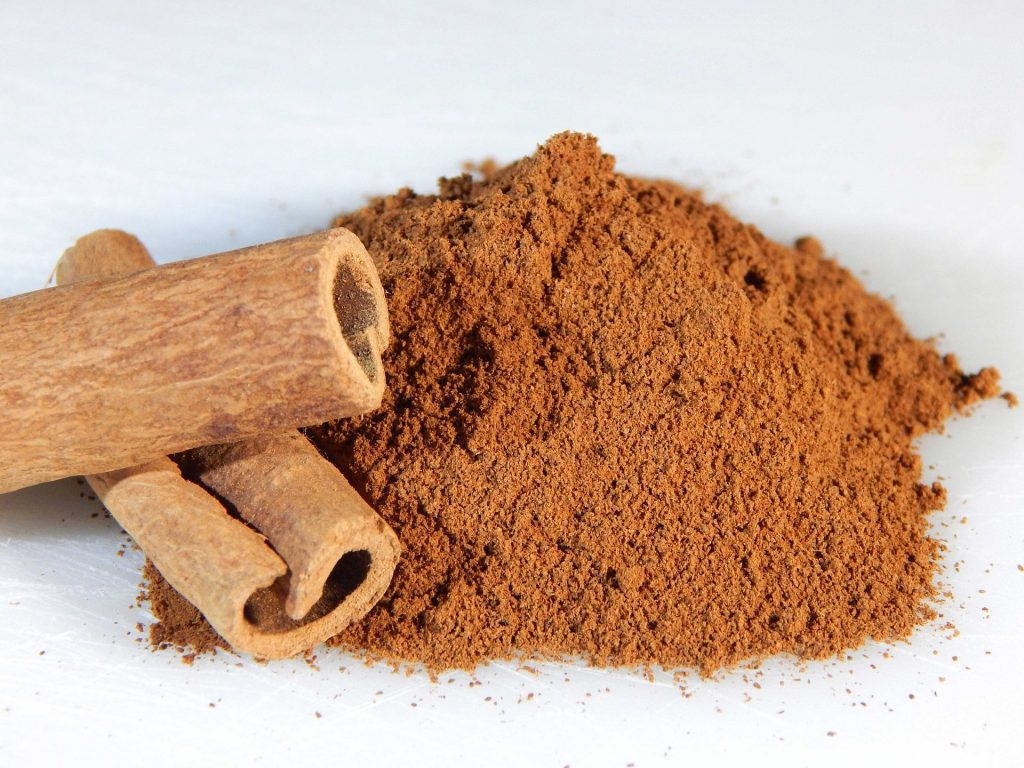Cinnamon has been used throughout history for food, medicine, religious ceremonies, fragrances, and more. It comes from the bark of a tree, and it is available in both stick and ground form.

Common Types of Cinnamon
- Ceylon cinnamon — This is sometimes called “true” cinnamon, and it has a somewhat mild flavor. It is often difficult to find and can be costly.
- Cassia cinnamon (also called Chinese or Saigon cinnamon) — This has a stronger flavor and is generally less expensive. It also has higher levels of a substance called coumarin, which can cause liver damage in large amounts. Most cinnamon products found in grocery stores do not identify the type of cinnamon used, but it is often cassia or a blend.
Health Benefits
All varieties of cinnamon are good sources of manganese, fiber, and antioxidants. Cinnamon can be a great way to add flavor to your food without sugar, salt, or extra calories. It also has anti-bacterial and anti-inflammatory properties and is sometimes used to treat mild digestive symptoms.
Some studies have shown that cinnamon could be helpful in reducing blood sugar and cholesterol. However, other studies have not shown these benefits, and amounts and types of cinnamon used are inconsistent. Be sure to consult a physician before taking a cinnamon supplement or adding large amounts to your diet.
Did You Know?
Cinnamon is not just for desserts! It can be a tasty addition to both sweet and savory dishes in your diet.
Try using it in:
- Applesauce
- Breads
- Coffee
- Curries
- Herbal tea
- Hot cereal
- Hot cider
- Hot cocoa
- Ice cream
- Marinades
- Muffins
- Pancakes
- Puddings
- Sauces
- Smoothies
- Spice rubs for meat
- Spiced nuts
- Waffles


